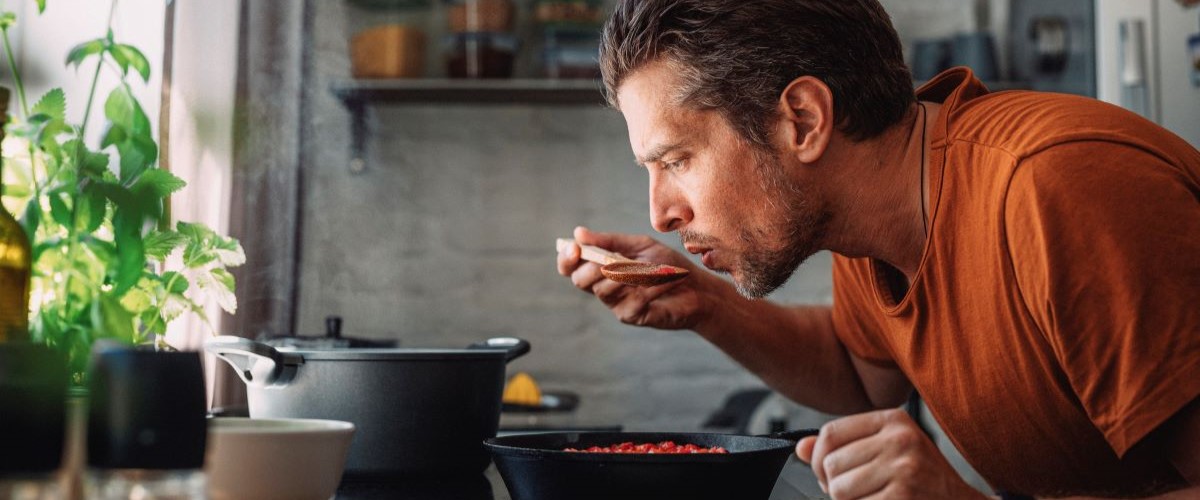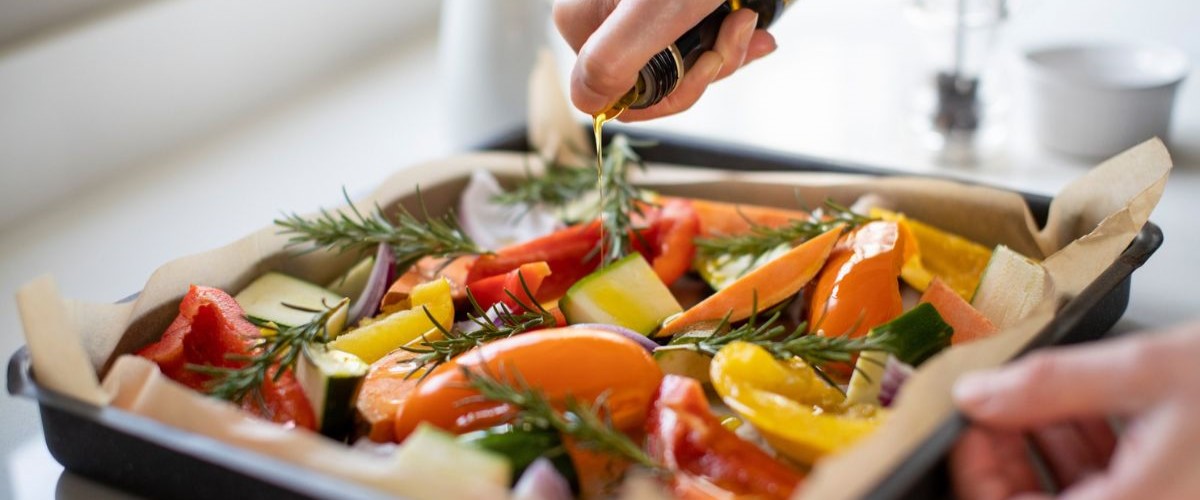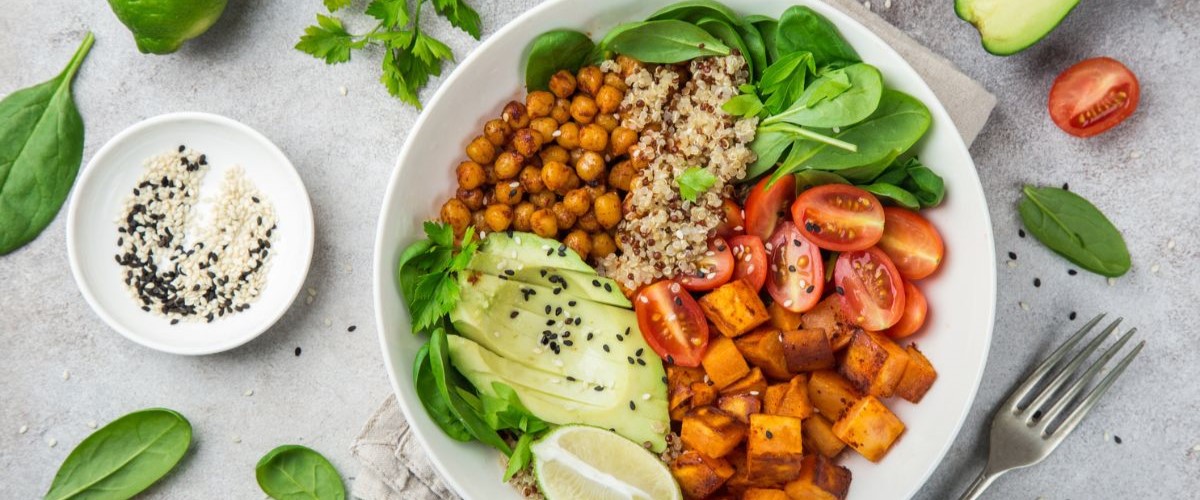How to kick off the new year with Veganuary
Is ‘Veganuary’ inspiring you to try veganism? What does it take to go vegan? Are there any implications on our health? Vitality Magazine finds the answers

More and more of us are trying veganism. For the official 2023 Veganuary campaign, more than 700,000 people from almost every country took part, marking its biggest sign-up numbers to date.
But despite the obvious growth of veganism, the idea of altering our diet can be intimidating and off-putting. Veganism means avoiding foods that are derived from animals, the obvious ones being: dairy, eggs, honey, meat and fish.
What’s often overlooked is that everyday items, such as alcohol, gelatine and food colourings, can also contain animal-based products – all of which can end up feeling like quite a lot to miss out on.
So much so, some concerns have been raised over the nutritional value of a vegan diet. That’s not to say, however, that you can’t overcome them.
And, while the number of people going vegan is due to ‘ethical motivations’, many Brits are making the switch to enjoy the health benefits of a vegan diet as well as to reduce their environmental footprint.
So, more people are clearly dipping their toe into the world of veganism. But how can you make sure that you’re getting all the necessary nutrients, vitamins and minerals your body needs to thrive?
Here, Vitality Magazine explores are a handful of tips to support your vegan journey.
It’s all in the planning
Thinking ahead of time can make a whole world of difference around how you structure your meals over the day. As the popularity of veganism increases, so does the amount of information available.
In January 2022, 1,540 vegan products and menus were launched in the UK, according to the non-profit organisation Veganuary – the Charity that began this movement back in 2014.
This can quickly become overwhelming when we begin to think about what balanced, delicious meal to make.
Often, the thought of planning our meals ahead of time can feel overwhelming.
Some people find a weekly meal planner to be extremely helpful, this also allows for an easier supermarket experience and keeping track of your spending.
 Also, before heading to the store, going through the products you use on a regular basis and writing a shopping list to see what is and is not vegan will help determine the foods which can be swapped out for other items.
Also, before heading to the store, going through the products you use on a regular basis and writing a shopping list to see what is and is not vegan will help determine the foods which can be swapped out for other items.
When making the transition to a vegan lifestyle, understanding the basics of nutrition will help to ensure what you eat provides the nutrients the body needs to thrive.
The NHS recommends having “fortified foods or supplements containing nutrients that are more difficult to get through a vegan diet, including vitamin D, vitamin B12, iodine, selenium, calcium and iron”.
Ease into veganism
This is a personal journey you’re embarking on and putting pressure on ourselves to get it right all the time may only discourage and demotivate you. There’s no right or wrong way to go vegan. Small, steady steps have a bigger impact over time.
James Vickers, Vitality’s nutrition expert, advises: “If you’re starting out, try and break it down a little bit at a time.
“Try alterative weeks, swap to a vegan breakfast, lunch or evening meal. Or pick days in the week to consume vegan products, as it can be hard to do all at once.” Try switching to a plant-based milk alterative once a day, or even weekly. This could be an almond, soya or oat milk.
Clare Gray, a dietician who has teamed up with Mindful Chef, recommends exercising caution when opting for plant-based milks, however, due to some lacking in calcium.
She suggests opting for fortified soya milk, as this is the closest in nutritional value to cow’s milk.
Veganise your favourite go-to meals
Going vegan doesn’t mean giving up the food you love. Just by swapping some ingredients means you can still enjoy many of your usual dishes.
Even though we've seen the rates of vegan production drop in recent years, there is still plenty of choice on offer in supermarkets, with 2018 seeing the UK launch more vegan products than any other nation. As we've already mentioned, it's worth having a look to see what replacements and alternatives are available to you.
For example, for anything with mincemeat, perhaps try switching it out for soya mince or adding lentils, and for a breakfast fry-up try vegan bacon and sausages.
Did you know that you can also make meringues from chickpea water? All you do is drain the liquid, known as Aquafaba, from your tin of chickpeas and whisk with golden caster sugar.
Try this out on your friends and family and see if they notice the difference! You can also make vegan mayonnaise with it too - click here for a recipe from our partners at Mindful Chef.
Ask the experts
For all the internet’s faux pars, it offers advice on a whole host of weird and wonderful topics. And if you're in need of some advice or vegan recipes that are also nutritional look no further.
Deliciously Ella and Vitality partner Mindful Chef are just a few platforms that are working hard to create hundreds of healthy vegan recipes that you might like to try.

Check the label
Products that are suitable for vegans will most likely shout about it on the packaging. But if you’re struggling to understand the back of a food pack, there are labels that signpost if a product is vegan. Vickers, however, warns of some wording to look out for.
“There is no legal definition for the term ‘vegan’ in UK and EU law,” he explains.
“However, General Food Law requires food to be safe and for its labelling to not mislead consumers.
“Even if food says, ‘safe for vegans’ or ‘suitable for vegans’ sometimes the label will say ‘may contain’. This could be due to cross contamination at some point of the process, so although it may be a vegan product, it might still contain animal products.”
Additionally, there are many apps where you can scan the barcode of the item to check this too, such as Vegan Pocket, or Vickers recommends checking The Vegan Society for more resources.
Have fun!
Going vegan can be seen as an opportunity to learn more about food and getting creative with it.
So have some fun with it and get to know your vegetables – even if that’s making small incremental changes once a week.
At Vitality, we’re all about encouraging our members to make small positive lifestyle choices that can make a big impact to their lives.
That’s why we offer partner benefits and rewards with a range of big brands when you get healthy.
Log into Member Zone or visit vitality.co.uk to find out more.
Recent articles

How to spot the signs and symptoms of cervical cancer
Do you know the signs and symptoms of cervical cancer? For Cervical Cancer Awareness month, writer Jennifer Wallis is keeping everyone in the know

Dry January: 7 tips to avoid falling off the wagon
From buddying up to seeking support, make sure you succeed this Dry January with our 7 ways to stay on the wagon

Everything you need to know about a full health MOT
Health screenings play a crucial role in protecting our long-term health. So, where and when should you get your next full body health MOT?

